There are so many brilliant people in this world!
Sometimes I feel grotesquely overwhelmed by a desire to read, to see, to experience, to feel, to try everything they have ever written, created, done, thought, imagined and touched. Sometimes I am afraid, and it is probably true, that I still know nothing, nothing at all. Sometimes I want to embrace our world in its entire greatness and I am so anxious that I am not worthy of it, not keen enough to perceive its ultimate brilliancy. Sometimes I think that there is just not enough time…
However, last Friday at the Museum für Kunst und Gewerbe Hamburg (MKG) I had a chance to grab my share of something BIG at the homage exhibition of Alexander McQueen’s fashion creations. Just a small piece of work by the late fashion icon was presented in an elegant display, but it already felt like getting in touch with something truly important, not only with a piece of somebody’s art and certainly not just with a couple of well-sewn robes. It felt like getting a brief glimpse in a very public “private room“ – full of realized and unrealized dreams, swarming with explosively bright visions and pitch-dark nightmares. It appeared like to be able to physically sense the impulses of designer’s imagination that allowed him to explore so many facets, so many epochs of human culture and reflect them with such an enormous depth and wit in his creations. It made me think about life cut short by some darkness, some necessity of self-destruction. Did he create it all and there was nothing left? Had his vessel become empty or had it been vaporized by the piercing heat of public judgment? Maybe it was a self-inflicted judgment after all – thankfully, no one will ever know. After all, the funnymen, most of all, crave and deserve some privacy.
All this poses a question: what is really McQueen’s contribution to the treasury of human culture? Although Kristin Knox, a power fashion-blogger, a journalist and the author of “Alexander McQueen: Genius of a Generation” answers this question already with the title of her book, I am afraid I cannot be affirmative on this matter yet. (*wait till my copy of the book arrives from the UK in the end of the week – may be Knox will knoxx me over ;)*) I have to admit: I don’t like the word “genius” very much. Mainly, because the sense of this word seems to be worn a bit flat these days.
The etymology of this word leads us to the ancient Roman mythology where genii, the spirits intermediate between the divine and human domains, were assigned to each new-born child as guardians. These beings, the predecessors of our guardian angels, were believed to be watching over human character. Later the word “genius” was introduced to English and to a number of other Indo-European languages meaning “the person’s inclination of character” (Webster’s NED 1993:419) This meaning was later narrowed down to “a strongly marked inclination” and, finally, underwent a shift towards the meaning we are all familiar with nowadays – “an extraordinary native intellectual power” (ibid.) I would like to suggest the latter as a contemporary conventional definition of “genius“.
So who is really a genius? Many folks out there would define Steve Jobs as one. The social networks were literally bursting with pathos of R.I.P. messages after the founder of Apple tragically passed out in 2011. While I was deeply sympathizing with Jobs’ family, and recognized the enormous achievements of this extraordinary man, I would never call Jobs a genius. Leaving pathos aside, I would rather suggest a “visionary” as a more fitting title.
Nevertheless, it seems that our generation is craving for a genius in our lives. This craving is, however, hardly a novelty. The search for an extraordinary power, transcendent mind, exceptional capacities is certainly not a defining feature of our generation, but a central trait of the human race in general. By finding our genius we are structuring our reality in a certain way inserting ourselves into a complex system of hierarchies, which serve as defining bids of our own personalities. In this respect, one could argue that each and everyone of us has her own mastermind, his own transcendent, life-defining genius – a political leader, a spiritual teacher, an artist, a writer, a musician, a scientist, or even a celebrity to admire and to imitate. For a creature as socially dependent as a human-being admiration is one of the most natural sentiments. In this respect, genius seems to be a vague and subjective category.
Searching for a plausible answer for my question I asked my friend Stella about her personal genius. She told me an interesting story about a person she happened to meet and to get well acquainted with. The most defining inclination or his genius was in his ability to boldly pursue his desires and ideas. If he set his mind on something extraordinary no obstacles and no conventional reasoning could stop him. His boldness gave him a kind of transcendence most of us never manage to reach. It seemed this person lived many lives in just one life-time – so rich and intense was his journey.
I am afraid that my own comprehension of human genius is quite a conventional one. Mine are the text-book geniuses – Copernicus, Da Vinci, Darwin, Einstein, Mozart, Dali, Esenin… And they are all dead – the dead geniuses of good old times. It is not my narrow-mindedness talking. It is my rather precise and slightly elevated understanding of the concept. All these people are united by the ground-breaking achievements or creations which we now call classics of genre. Their transcendence is in dramatic changes they brought into our lives, in their ability to think outside of the conventional framework – not for the pecuniary reasons and not for sale or admiration in the first place (also I agree some of them combined the former and the latter), but because they are just not aware of the framework’s existence or at least of its boundaries. Their genii are universal, even if in some parts of their work they might have been amiss. The rules of our day-to-day reality does not apply here – right and wrong, black and white are too confining categories for these people.
Keeping this argument in mind, I once again would like to attend to Mr. McQueen’s case. Fashion is an art of illusion, the fast-paced domain of artificiality turned into nature. It is one of the massive pillars the popular culture resides upon. It is a hegemony of a few who provide us with a set of swiftly changing, and therefore consumption-driving rules for the pseudo-freedom of self-definition. It is one of the most commercialized arts and a 100%-for-sale inspiration. Nevertheless, there is always a biblical truth in separation of the sheep from the goats: in our case, this truth rests upon the careful differentiation between artists and craftsmen of fashion. And if the defining symptom of a genius is the ability to create universal aesthetics and transcendental beauty, to establish a canon and to make an attempt in providing answers to the eternal questions of the human-centristic universe, than the fashion by Alexander McQueen is indeed high art created by an artist and a genius. Without a doubt, the trustworthiness of this argument is a subject of proof at the trial of history. Only time will show the deepness of the mark McQueen has left on the collective cultural memory. And let the same everlasting trial also, at some point in time, clarify why all the genii must decease before the generation they are so excessively craved by.
Useful links:
– McQueen’s Angels and Demons
– Alexander McQueen Launches New Website and Introduces McQ E-Commerce
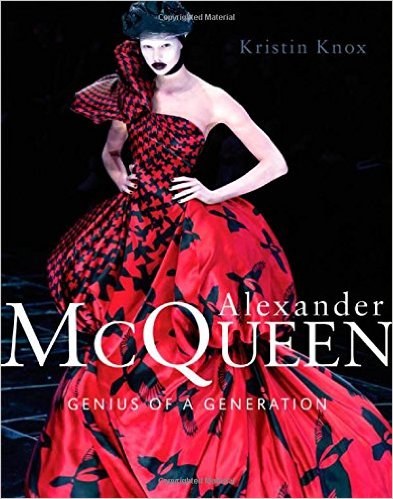
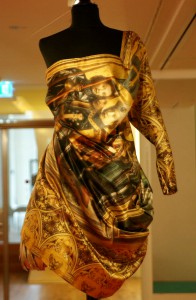

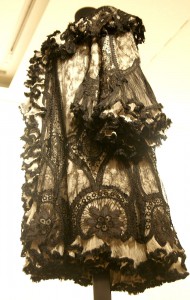



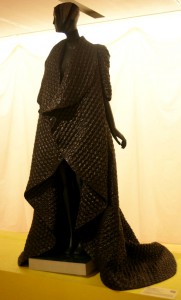
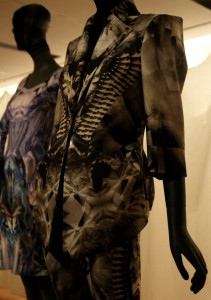


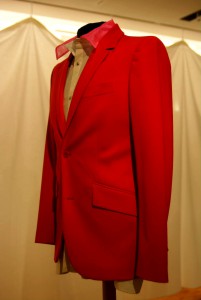


Leave a Reply